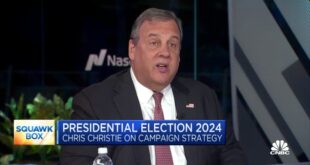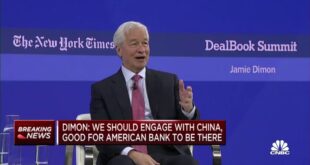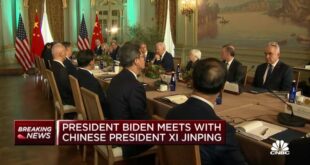Independent presidential candidate Ross Perot holds up a copy of the famous Chicago Daily Tribune front page declaring Thomas Dewey the winner over Harry Truman in the 1948 presidential election 01 November 1992 during a rally in California.
Mike Nelson | AFP | Getty Images
Ross Perot influenced American presidential politics as the most successful third-party candidate to run since Teddy Roosevelt in 1912.
The billionaire philanthropist, whose death at 89 was announced Tuesday, won more than 18% of the vote in the 1992 race. At one point in the campaign, he was beating both the incumbent President George Bush and future President Bill Clinton in the polls.
No other third-party candidate had ever before even come in second, The New York Times reported at the time. Perot’s impressive vote share was seen by some as tipping the election to Clinton, though there is little evidence for the claim, and political scientists have rebutted it in the years since.
Read more: Billionaire and former presidential candidate Ross Perot dies
Perot’s outsider bid, inspired by his opposition to the federal deficit and U.S. trade policy, has influenced the way those issues are discussed today, historians say.
“Ross Perot was certainly the most influential political force in the late 20th century from outside the regular party system,” said Allan Lichtman, a distinguished professor of history at American University. “I think what explains it is people’s dissatisfaction — this is absolutely relevant to the appeal of Donald Trump — people’s dissatisfaction with business as usual in Washington.”
After his historic 1992 run, Perot attempted another bid four years later, but with less success. In that cycle, he received only about 8% of the popular vote.
In 2000, another third-party candidate, Ralph Nader, had an impact on the race between George W. Bush and Al Gore. Though Nader received less than 3% of the popular vote, the closeness of the race has led political scientists and observers to suggest he may have played a role in tilting the election to Bush.
Among the other third -arty candidates who performed well were Roosevelt, Robert La Follette in 1924 and George Wallace in 1968. While Roosevelt and La Follette pushed for progressive reforms, such as limits on the power of big business, Wallace advocated for southern segregationists.
 EU News Digest Latest News & Updates
EU News Digest Latest News & Updates



